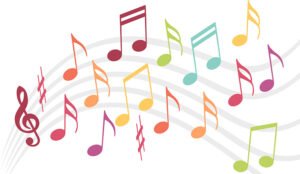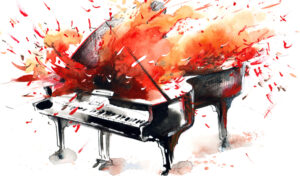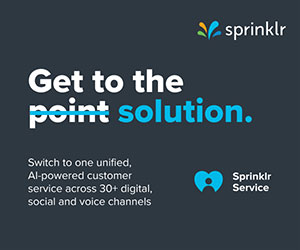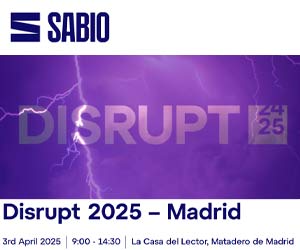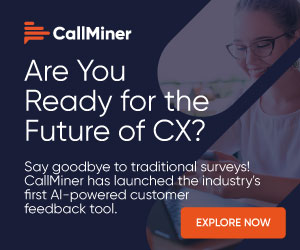Is your call centre one of the many that is scaring customers away by playing cheesy soft-rock ballads or low-grade versions of “Greensleeves” during hold time? If so, don’t fear. Duncan Miller is on hand to advise you on making best use of your hang time
Efficient and well-managed call centres can create the foundation of excellent customer service. But ‘hang time’ – the time the customer has to spend on hold – is costing companies more customers than they might think.
Infamous hold music has traditionally been used to ‘entertain’ the caller during their wait. However, in a recent survey conducted by Inter-Tel, irritating music was named as one of the most frustrating aspects of the call centre experience. In fact, it rated as even more annoying than being passed through different departments or having to reiterate personal details.
Top tips to make your customers’ time on hold worthwhile
Seek a balance between hold music, advertising and messages. You want the caller’s wait to be as painless as possible, and certainly don’t want to emphasise how long the caller is forced to wait. So look to strike a balance between carefully thought-out music (see below), advertising and information messages.
Think carefully about hold music. No one waiting in a queue for a complaints or emergency line wants to hear “Always look on the bright side of life”, and the choice of “Something in the air tonight” by a gas emergency helpline would highlight some serious gaps in customer empathy.
Don’t annoy people with useless advertising messages. Understand that a caller ringing a bank complaints service, for example, would be unlikely to welcome credit card or savings schemes adverts. In contrast, customers ringing a ticket hotline are likely to be interested in relevant merchandise, upcoming events and ticket offers. It’s all about matching advertising messages to the appropriate situation.
Consider using messages of information and encouragement. If callers know that they are second or third in line to speak to an agent, they are more likely to hold on than if they were offered some up-sell or cross-sell deal that they won’t be interested in hearing about until they’re actually speaking to a live agent.
Hold music may seem insignificant, but considering that a large number of callers hang up as a direct result of inappropriate or downright annoying hold tunes, it’s actually pretty important in terms of customer relations – not to mention business revenue.
The good thing is that, with appropriate planning, hang time can actually be used to promote a company’s image and generate new business. With the right technology and tailored messaging, hang time can even improve customer service and revenue. Through a combination of these, companies can take advantage of the invaluable marketing opportunities.
Sell, sell, sell
As well as causing frustration, hold music can waste potentially lucrative advertising space.
“irritating music was named as one of the most frustrating aspects of the call centre experience”
Filling hang time with annoying adverts tends to alienate customers in the same way as monotonous music. But if technology is used properly, intelligent marketing decisions can be made based on the details of the caller and the relevant company department. A call handling system could locate this information, and a tailored messaging service could act accordingly.
A caller ringing a bank complaints service, for example, would be unlikely to welcome credit card or savings schemes adverts. But customers ringing a ticket hotline are likely to be interested in relevant merchandise, upcoming events and ticket offers.
If shrewd decisions are made, companies could make the most of an advertising opportunity that’s staring them in the face. But in order to do this, it has to be recognised that not all callers are the same, and decisions need to be made based on the information given.
Always look on the bright side of life
There’s no need to cut hold music out altogether, of course. A balance of relevant advertising, messages and music could be struck in order to make the caller’s wait as painless as possible.
There are obvious reasons why hold music is almost universally disliked. A high proportion of call centre music is repetitive, out-of-date and often highly inappropriate – merely emphasising how long the caller is forced to wait.
And the more callers that hang up out of frustration, the more likely the company is to see its business dwindle. So as well as using music and advertising, it is wise to use messages of information and encouragement. If callers know that they are second or third in line, for example, they are likely to hold on.
And in terms of music, it’s all about smart choices. Of course, call centres can’t guess the musical tastes of all of its callers. But simple Internet protocol (IP) telephony can prevent errors of judgement that are likely to irritate customers and lose business.
Again, knowing what department a caller is waiting for is of paramount importance. No one waiting in a queue for a complaints or emergency line wants to hear “Always look on the bright side of life”, and the choice of “Something in the air tonight” by a gas emergency helpline would highlight some serious gaps in customer empathy.
Money, money, money
Successful marketing and customer service schemes can significantly strengthen business revenues, but they also require a decent budget. Call centres are not appropriate areas for economisation.
Being kept on hold and subjected to “Greensleeves” for the hundredth time is hardly likely to make customers feel valued. Indeed, it’s precisely because they’re so neglected that call centres remain such an unpopular and often unsuccessful feature of customer service.

Duncan Miller
Shrewd but generous budgeting will allow companies to transform their customers’ call centre experience, and their business to boot.
Advertising should therefore always be carefully considered. Businesses would not use cheap options for billboard or television advertising, and marketing during hang time should be no different. Similarly, music selections should be made perceptively and constantly reviewed.
Businesses need to implement the right technology, understand potential marketing opportunities and, above all, recognise that not all customers have the same requirements. In this way, companies can make their call centres work for, rather than against, their customers. And only then can their customers work for them.
Duncan Miller was previously the Director of Marketing EMEA at Inter-Tel
Tel: +44 845 271 9100
Author: Jonty Pearce
Published On: 28th Jun 2007 - Last modified: 3rd Jul 2018
Read more about - Technology, Music on Hold







